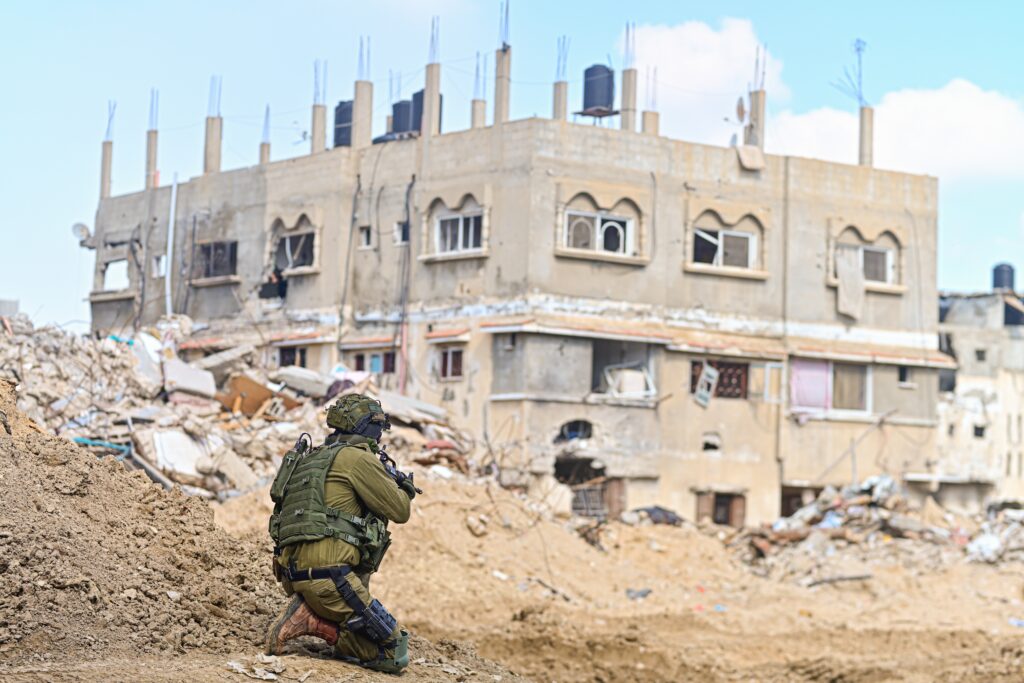Israel continues to block humanitarian aid from entering Gaza in an effort to pressure Hamas to release the remaining 59 hostages. The blockade resumed after a ceasefire collapsed in March, worsening the humanitarian crisis in the region. United Nations relief chief Tom Fletcher called on Israel to lift the blockade without delay, warning that using aid as a bargaining tool violates international law. Aid agencies report rising malnutrition and growing medical shortages across Gaza, while thousands of trucks carrying food and medicine remain stuck at border crossings.
UN Condemns Aid Blockade as Civilian Crisis Escalates
UN Emergency Relief Coordinator Tom Fletcher condemned Israel’s policy of linking aid access to political goals.
“Aid must never be used as leverage. Blocking food and medicine kills people,” he said in a public statement on Thursday.
Fletcher added that humanitarian efforts must remain neutral and protect civilians on all sides.
On Wednesday night, hundreds of desperate Palestinians broke into a humanitarian center in Gaza. They took medical supplies and damaged vehicles, but aid workers were not harmed.
The UN’s Office for the Coordination of Humanitarian Affairs (OCHA) warned that many hospitals lack basic supplies, and food shortages are becoming extreme.
Rising Hunger and Medical Shortages Across Gaza
Health workers in Gaza report a sharp rise in malnourished women and newborn babies.
According to the UN, more than 660,000 children can no longer attend school, and many suffer from hunger.
Food warehouses are empty. Clean water is scarce. Medical services are collapsing under the pressure of war and blockade.
Aid groups said Israel’s new aid plan—using private contractors or direct military control to distribute supplies—violates humanitarian norms. UN officials rejected the proposal, saying it removes impartiality and puts aid workers at risk.
UK, UN Demand Border Access for Waiting Convoys
The UK joined the UN in demanding that Israel allow urgent humanitarian access.
British officials stressed the need to support Gaza’s broken health system and protect medical workers.
More than 3,000 aid trucks are waiting at Gaza’s border, loaded with food, water, and medical aid. But none can move while the blockade remains in place.
The UN’s Palestinian relief agency (UNRWA) warned that over one million children now lack access to regular food supplies.
UNRWA called on Israel to reopen all crossings and let civilians receive aid.
Ongoing War Fuels Mounting Death Toll
The conflict began on 7 October 2023, when Hamas launched a deadly attack in southern Israel, killing 1,200 people and taking 251 hostages.
Since then, Israeli forces have conducted intense air and ground operations across Gaza.
Gaza’s health ministry reports more than 52,400 Palestinians have died, many of them women and children.
Israel has reported the loss of 850 soldiers during the campaign.
Of the original 251 hostages, 59 remain in Gaza. Israel believes 24 are still alive, according to recent intelligence reports.
The government has linked any easing of the blockade to the release of these hostages. But humanitarian leaders say this approach punishes civilians and breaks international norms.
UN agencies, aid groups, and governments continue to call on Israel to allow unrestricted humanitarian access into Gaza.
“There is no justification for starving civilians,” Fletcher said. “Human dignity must come before politics.”
As the conflict continues, the people of Gaza face hunger, illness, and fear. Aid groups warn that without swift action, the humanitarian disaster will deepen even further.
